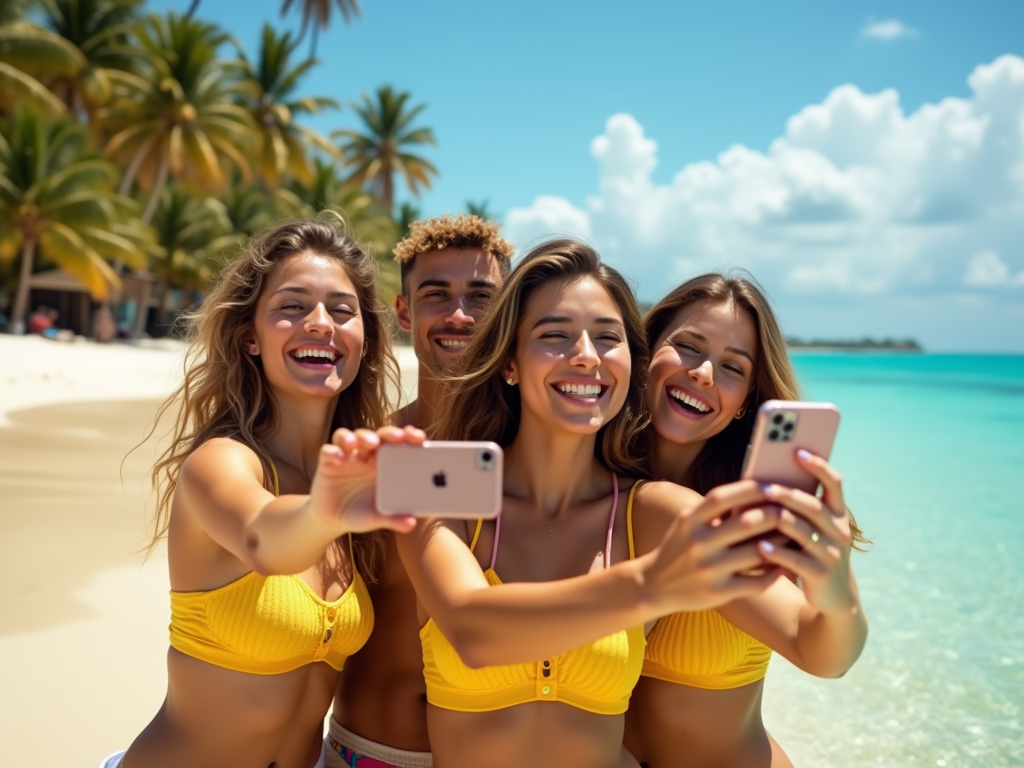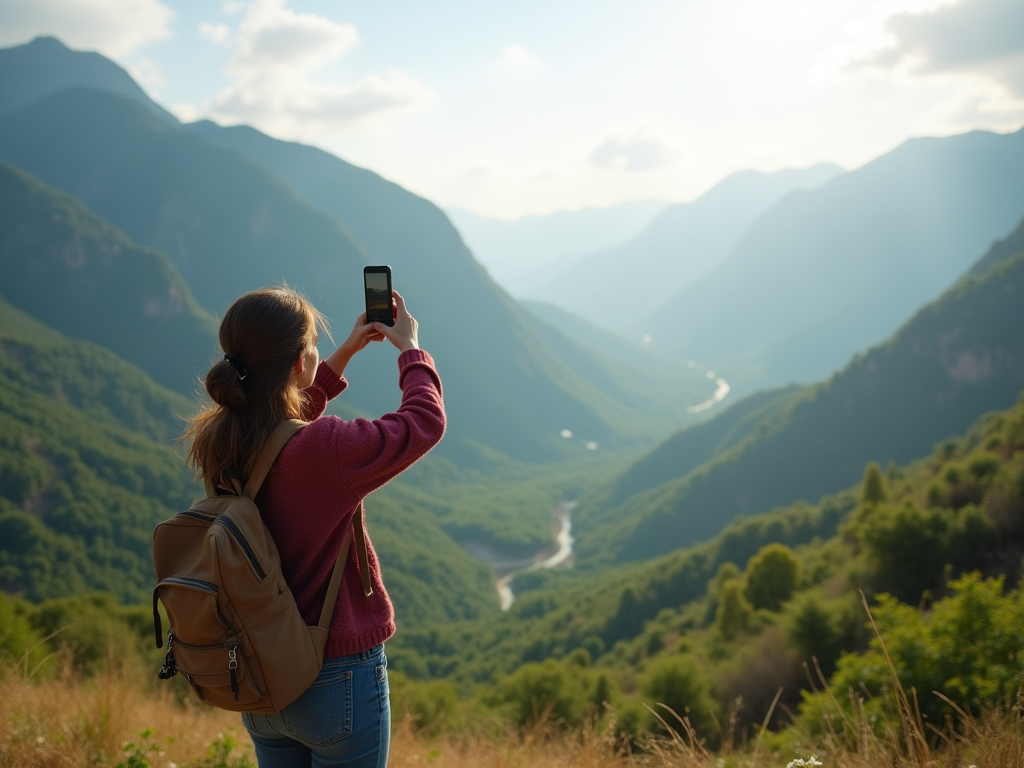Influencer marketing has emerged as a key strategy in the travel industry, connecting brands with audiences in authentic ways. As travelers increasingly turn to social media for inspiration and guidance, influencers serve as trusted sources. Their ability to share unique experiences allows travel brands to reach targeted demographics effectively. In this article, we will explore the vital role of influencer marketing in the travel sector, examining how it enhances brand visibility, builds trust, and drives customer engagement.
Understanding the Role of Influencers in Travel

In the travel industry, influencers act as brand ambassadors who utilize their platforms to share personal experiences with destinations, accommodations, and activities. This unique relationship allows brands to leverage influencers’ credibility and creativity, which humans naturally gravitate towards. Influencer marketing in travel can manifest through various channels, including blog posts, social media, and video content. By selecting the right influencers, travel brands can reach specific market segments more efficiently. This approach is not only about visibility but also about genuine engagement with potential customers, fostering a connection that traditional advertising might not achieve. Understanding the dynamics of this relationship clarifies why influencer marketing is so impactful in travel.
Enhancing Brand Visibility

One of the primary benefits of influencer marketing is the enhanced visibility it brings to travel brands. Given the vast number of influencers across platforms like Instagram, TikTok, and YouTube, brands can tap into diverse audiences globally. Influencers create visually stunning content that showcases travel experiences, inspiring their followers to explore new destinations. This exposure translates into valuable brand awareness and recognition in an industry that relies heavily on word-of-mouth recommendations. Here are some ways influencer marketing enhances brand visibility:
- Targeted Outreach: Brands can choose niche influencers who cater to specific interests, ensuring their message reaches relevant audiences.
- Content Variety: Influencers can produce various content types, including stunning photos, engaging videos, and detailed blog posts that resonate with different demographics.
- Social Proof: Followers often perceive influencers as relatable, which legitimizes the brand through authentic recommendations.
- Viral Potential: Unique and captivating content has the potential to go viral, exponentially increasing reach.
- Real-Time Updates: Influencers can provide immediate exposure to limited-time offers or events, driving urgency and engagement.
Building Trust with Target Audiences
Trust is a cornerstone of effective marketing, especially in the travel industry. Potential travelers often feel overwhelmed by choices, and influencer marketing helps break down barriers to trust. When travel brands collaborate with reputable influencers, they benefit from the influencers’ established relationship with their audience. Followers see these influencers as more than just marketers; they view them as genuine sources of inspiration and information. This relationship can lead to increased trust in the brand and a higher likelihood of conversion. It’s crucial for brands to work with influencers whose values align with their own to maintain authenticity. Influencer marketing serves as a bridge that connects brands and travelers, fostering a sense of trust that is essential for long-term customer relationships.
Another significant advantage of influencer marketing is the high-quality content it generates. Influencers are content creators who excel at storytelling through their visual and written skills. This creativity allows brands to present their offerings in a way that feels organic and captivating. The content produced by influencers often showcases destinations in a light that resonates with their audience, whether through breathtaking photography or engaging narratives. Travel brands can repurpose this content across their channels, creating a cohesive and visually appealing brand image. Additionally, consistent quality content strengthens brand identity and helps differentiate them from competitors. Overall, influencers significantly contribute to the creation of compelling content that engages audiences and drives interest in travel offerings.
Driving Engagement and Conversions
Influencer marketing not only enhances brand visibility but also plays a critical role in driving engagement and conversions. When influencers share their travel experiences, they encourage followers to take action, such as booking a trip or trying out a recommended service. The authentic nature of influencer partnerships fosters genuine engagement, leading to increased interaction on social media platforms. Moreover, influencers often provide unique discount codes or promotions that incentivize followers to convert into paying customers. This promotional strategy allows brands to track the effectiveness of their influencer campaigns easily. In many cases, the relatability and trust established through influencers can lead to higher conversion rates compared to traditional advertising methods. Ultimately, influencer marketing enhances the customer journey from exploration to conversion.
Conclusion
In summary, influencer marketing is a powerful tool in the travel industry that enhances brand visibility, builds trust with audiences, generates high-quality content, and drives engagement and conversions. As travel continues to evolve, brands that effectively integrate influencer partnerships into their marketing strategies will likely see substantial benefits. Understanding the value of authentic connections and creative content is essential for success in this competitive landscape. By leveraging the influence of trusted voices, travel brands can navigate the complexities of the modern customer journey and thrive in a dynamic environment.
Frequently Asked Questions
What is influencer marketing in the travel industry?
Influencer marketing in the travel industry involves brands collaborating with individuals who have a significant following on social media platforms. These influencers promote travel destinations, experiences, and services, leveraging their credibility to engage potential travelers.
How does influencer marketing increase brand visibility?
Influencer marketing increases brand visibility by enabling travel brands to reach specific audiences through curated content. Influencers’ large followings and authentic storytelling help brands gain recognition and awareness in a crowded market.
Can influencers really drive sales for travel brands?
Yes, influencers can drive sales for travel brands through authentic promotions, storytelling, and exclusive offers. Their ability to connect with followers creates a sense of trust that can lead to higher conversion rates.
What types of content can influencers create for travel brands?
Influencers can create a variety of content types, including stunning photos, engaging videos, blog posts, and live streams. This diverse content appeals to different audiences and showcases travel experiences uniquely.
How can travel brands choose the right influencers to work with?
Travel brands should consider factors such as the influencer’s niche, audience demographics, engagement rates, and content style when selecting partners. Collaborating with influencers whose values align with the brand ensures authenticity and relevancy.


